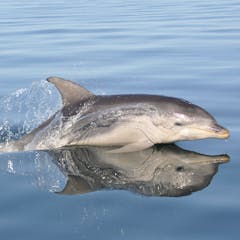
Articles on Water pollution
Displaying 1 - 20 of 185 articles

US cities are doing green infrastructure, but in bits and pieces. Today’s climate-driven floods require a much broader approach to create true sponge cities that are built to soak up water.

Lawsuits are inevitable, but an environmental lawyer explains why the EPA’s new power plant regulations are on solid ground.

We sampled sewage sludge from 13 wastewater treatment plants across three states. We found every resident adds microplastics to farmland, in dried sewage sludge (biosolids) used as fertiliser.

Phosphorus and nitrogen contribute to water pollution and cause harmful algal blooms. New research shows how mats of floating flower beds can take advantage of these nutrients while cleaning the water.

The inability of city authorities to enforce land-use regulations has allowed people to carry out ecologically unfriendly activities along the water bodies.

Your washing machine is polluting the ocean.

When ships sink, they add artificial structures to the seafloor that can quickly become diverse, ecologically important underwater communities.

This year’s Blue Drop Audit report of water quality in South Africa has found that 46% of water supply systems are contaminated and over two thirds of wastewater treatment plants are close to failure.

Researchers are finding alarming concentrations of persistent pollutants such as PFAS in Australian dolphins. These record-breaking levels are cause for concern.

Many mountain lakes in the Pyrenees have turned green, a phenomenon that is a warning about the multiple pressures on ecosystems.

‘Living materials’ made with genetically engineered bacteria and Jell-O-like gel could make pollutants in water bodies nontoxic.

Simply trying to avoid synthetic clothing won’t fix our microfibre pollution problem

The largest lake in the UK and Ireland has been blighted by toxic blue-green algae.

Developers will no longer have to offset nutrient pollution from new housing projects – the UK government say this won’t degrade water quality.

A pipeline that has carried Canadian oil and gas across Wisconsin and Michigan for 70 years has become a symbol of fossil fuel politics and a test of local regulatory power.

New restrictions on PFAS and other potentially hazardous chemicals in Australia present an opportunity for industry to develop alternatives for new, safe and clean products.

Seagrasses need light to remain resilient to marine heatwaves – water pollution disrupts that balance.

Urban rivers and creeks have bounced back from early colonial use as convenient waste dumps. But the restoration work isn’t done yet, as Melbourne’s Darebin Creek shows.

Humans rely on the ocean for food, jobs and other resources, but these systems are being stressed to the brink.

Millions of people worldwide are exposed via soil and water to arsenic, whether naturally occurring or related to pollution. Chronic exposure is linked to the formation of cancer stem cells.
